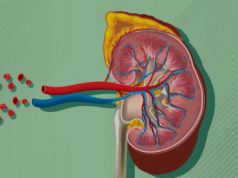Rheumatoid arthritis (RA) can manifest in various ways, and its early symptoms can be quite diverse. While joint pain, stiffness, and swelling are typical early signs, some less common symptoms may also indicate the onset of RA. These include:
- Fatigue: Feeling unusually tired or exhausted even after adequate rest is a common early symptom of RA.
- Fever: Low-grade fevers may occur in some individuals with RA, especially during disease flares.
- Numbness or tingling: Some people may experience sensations of numbness, tingling, or pins and needles in their extremities due to nerve inflammation caused by RA.
- Loss of appetite: Decreased appetite or unintended weight loss can occur as a result of the systemic inflammation associated with RA.
- Dry eyes and mouth: Sjögren’s syndrome, an autoimmune disorder that commonly occurs alongside RA, can lead to symptoms such as dry eyes and mouth.
- Skin nodules: Small firm lumps or nodules under the skin, known as rheumatoid nodules, can develop in some individuals with RA, often at pressure points or areas of joint inflammation.
- Chest pain: Inflammation of the lining around the heart (pericarditis) or the lungs (pleurisy) can cause chest pain or discomfort in some people with RA.
- Eye problems: RA-related inflammation can affect the eyes, leading to symptoms such as dryness, redness, pain, or blurred vision.
- Anemia: Chronic inflammation in RA can interfere with the production of red blood cells, leading to anemia, which can cause symptoms like fatigue, weakness, and pale skin.
- Foot symptoms: Some individuals may experience symptoms in the feet, such as pain, swelling, or stiffness, which can affect mobility and quality of life.
It’s important to note that these symptoms can vary widely among individuals, and not everyone with RA will experience all of them. If you suspect you may have rheumatoid arthritis or are experiencing any unusual symptoms, it’s essential to consult a healthcare professional for an accurate diagnosis and appropriate management.









